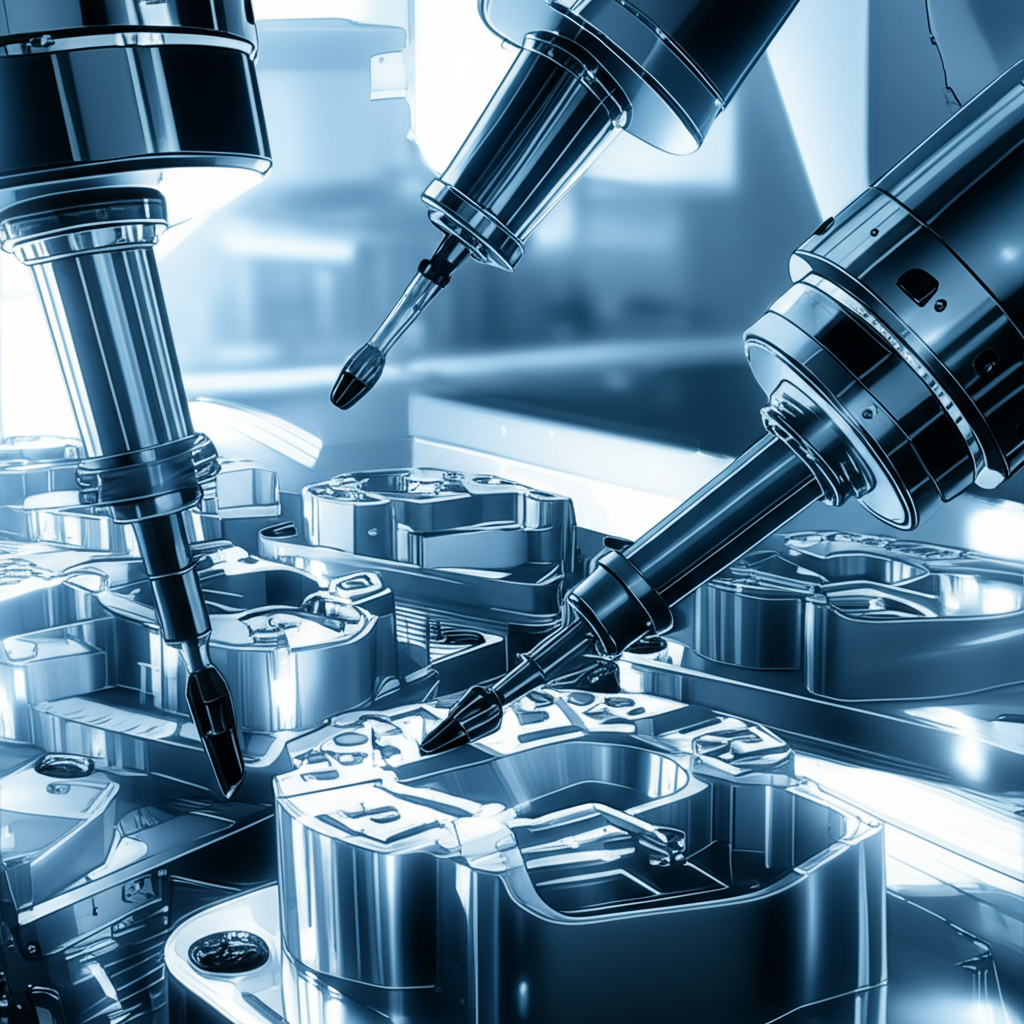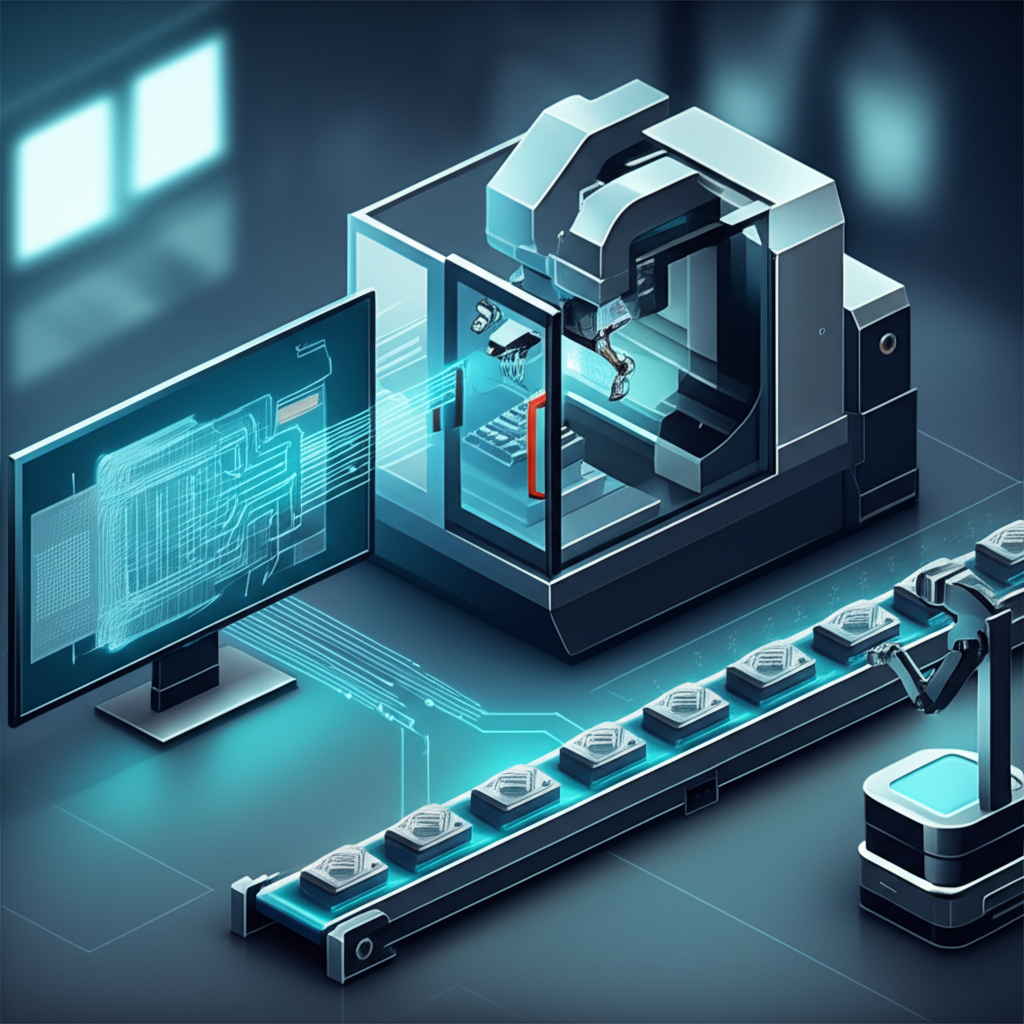Mastering Scale with Volume Production CNC Services

TL;DR
Volume production CNC services use automated, computer-controlled machinery to manufacture large quantities of high-precision parts with exceptional consistency. This method is crucial for industries requiring scalability, enabling businesses to efficiently produce complex components with tight tolerances. Key benefits include rapid production speeds, dependable repeatability, and significant cost-effectiveness for high-quantity orders.
Understanding High-Volume CNC Machining: Precision at Scale
High-volume CNC (Computer Numerical Control) machining is a subtractive manufacturing process designed for the mass production of identical parts. Unlike prototyping or low-volume production, which prioritize flexibility for design changes, high-volume machining is optimized for efficiency, speed, and unwavering consistency across thousands or even millions of units. The core principle involves programming computer-driven machines to remove material from a solid block (a blank) to create a finished component based on a digital design file. This automation is the key to achieving precision at a massive scale.
The technology behind this process is sophisticated, relying on advanced machinery like multi-axis CNC machining centers. As noted by experts at Pinnacle Precision, 3-axis and 5-axis machines allow for the creation of complex geometries without needing to manually reposition the workpiece, which drastically reduces setup time and the potential for error. This capability, combined with robotic machine tending and automated tool changers, enables continuous, 24/7 operation. The process ensures that every part produced is a perfect replica of the one before it, meeting exacting standards every time.
The primary benefits of engaging in volume production CNC services are multifaceted and directly impact a business's bottom line and market competitiveness. First and foremost is the achievement of tight tolerances and high repeatability. For industries like aerospace and medical devices, where precision is non-negotiable, CNC machining delivers components that meet stringent quality requirements consistently. Furthermore, automation significantly reduces lead times for large orders and lowers the cost-per-part, as the initial setup costs are distributed over a large production run. This scalability allows businesses to ramp up production to meet market demand without sacrificing quality, providing a significant strategic advantage.
Key Applications and Industries Served
The versatility and precision of high-volume CNC machining make it an indispensable service for a wide range of industries where quality and quantity are paramount. The ability to work with various materials and produce complex parts at scale has solidified its role in modern manufacturing. From automotive assembly lines to critical medical implants, the applications are both diverse and essential for technological advancement.
Several key sectors heavily rely on these services for their core components. According to manufacturing service provider Xometry, these industries include:
- Aerospace: For manufacturing critical components like engine parts, structural elements, and landing gear components that must withstand extreme conditions and meet rigorous safety standards.
- Automotive: Used for the mass production of engine blocks, transmission parts, brake systems, and other precision components that ensure vehicle performance and safety.
- Medical and Dental: Essential for producing surgical instruments, orthopedic implants, prosthetics, and custom dental components where biocompatibility and absolute precision are required.
- Industrial Automation: For creating parts for industrial machinery, robotics, hydraulic systems, and tooling that form the backbone of other manufacturing processes.
- Consumer Electronics: High-volume CNC is used to produce intricate and durable components for smartphones, laptops, and other gadgets, such as housings and connectors.
The impact of this technology within these industries is profound. In the automotive sector, for example, the consistent quality of CNC-machined parts contributes to the reliability and longevity of vehicles. In the medical field, the ability to produce thousands of identical, flawless implants from materials like titanium ensures patient safety and device efficacy. This widespread adoption underscores the critical role of high-volume CNC services in enabling innovation and mass production across the global economy.

Advanced CNC Capabilities and Material Expertise
The effectiveness of volume production CNC services hinges on two core factors: the sophistication of the machining processes and the breadth of material expertise. Top-tier providers offer a comprehensive suite of capabilities designed to handle diverse project requirements, from simple components to highly complex geometries. These advanced capabilities ensure that clients receive parts that are not only produced in quantity but are also optimized for performance, durability, and cost-effectiveness.
A crucial aspect of this service is the variety of machining processes available. Leading shops are equipped to perform multiple operations, often combining them to streamline production. For instance, providers like XTJ utilize advanced 4 and 5-axis CNC machining centers to handle over 30 materials with tolerances as tight as +/- 0.005mm, serving industries from aerospace to medical. Common processes include:
- CNC Milling: Uses rotating multi-point cutting tools to remove material from the workpiece. Multi-axis milling is ideal for complex 3D shapes.
- CNC Turning: Involves rotating the workpiece while a single-point cutting tool moves along its surface, perfect for creating cylindrical parts like shafts and pins.
- Drilling, Boring, and Tapping: Essential processes for creating holes and threads with high precision.
- Contouring and Surfacing: Advanced techniques used to create smooth, complex surfaces required in aerospace and automotive applications.
Equally important is the range of supported materials. The ability to machine various metals and plastics allows for the production of parts suited for specific applications and environments. As detailed by Protolabs, a leading online manufacturer, material selection is critical. Metals like Aluminum, stainless steel, and titanium offer strength and durability, while high-performance plastics such as PEEK and Nylon provide benefits like light weight and chemical resistance. This versatility enables engineers and designers to select the optimal material for their project without being limited by manufacturing constraints, ensuring the final product meets all functional requirements.
The Strategic Advantage of a Production Partnership
Choosing a provider for volume production CNC services is more than a simple transaction; it's about forming a strategic partnership that can enhance your entire production lifecycle. The right partner offers not just manufacturing capacity, but also expertise, reliability, and a commitment to quality that can provide a significant competitive edge. This collaborative approach ensures that your components are produced efficiently and meet the highest standards, from initial design for manufacturability (DFM) analysis to final inspection and delivery.
The core value of such a partnership lies in leveraging the provider's specialized infrastructure and knowledge. High-volume production requires substantial investment in advanced machinery, quality control systems, and skilled personnel. By outsourcing to a specialist, companies can access state-of-the-art technology without the massive capital expenditure. This leads to several key benefits:
- Quality and Precision: Established providers have robust quality management systems, often with certifications like ISO 9001 or AS9100, ensuring every part meets exact specifications.
- Scalability and Speed: A dedicated partner can quickly scale production up or down to match demand, offering faster lead times than would be possible with in-house operations. As noted by service providers like WIPCO, this agility is crucial for meeting tight project deadlines.
- Cost-Effectiveness: Through optimized processes, bulk material purchasing, and automation, specialized providers can deliver a lower cost-per-part on high-volume orders.
- Expert Consultation: Experienced partners provide valuable feedback on material selection and design optimization to improve manufacturability and reduce costs.
Ultimately, a successful partnership transforms a supplier into an extension of your own team. It frees up your internal resources to focus on core competencies like research, development, and marketing, while entrusting the complexities of mass production to proven experts. This synergy accelerates product development, improves final product quality, and strengthens your position in the market.

Frequently Asked Questions About Production CNC Services
1. What factors influence the cost of high-volume CNC services?
The cost of high-volume CNC services is determined by several key factors. Part complexity is a major driver; designs with intricate geometries, tight tolerances, and multiple surface finishes require more programming and machine time. Material choice also plays a significant role, as raw material costs vary widely, and some high-performance alloys are more difficult to machine. Finally, the total order quantity is crucial; while larger volumes require more machine time overall, they significantly reduce the per-part cost due to economies of scale in setup, programming, and material purchasing.
2. What is a typical lead time for volume production orders?
Lead times for volume production can vary significantly based on the project's complexity, the quantity of parts ordered, and the provider's capacity. For straightforward parts in common materials, lead times can be as short as a few days to a couple of weeks. However, for large orders (10,000+ units) of complex components, lead times of 5 to 8 weeks are more common. It is always best to consult directly with the service provider for an accurate quote based on your specific design and requirements.
3. How does automation impact high-volume CNC machining?
Automation is the cornerstone of modern high-volume CNC machining and is essential for achieving efficiency and consistency. Automated systems, such as robotic arms for loading and unloading parts and automatic tool changers, allow machines to run continuously with minimal human intervention. This not only increases production output and speed but also drastically reduces the potential for human error. The result is higher precision, greater repeatability, and lower labor costs, all of which are critical for making high-volume production viable and cost-effective.
-
Posted in
cnc machining, CNC services, High Volume Production, industrial machining, precision manufacturing





